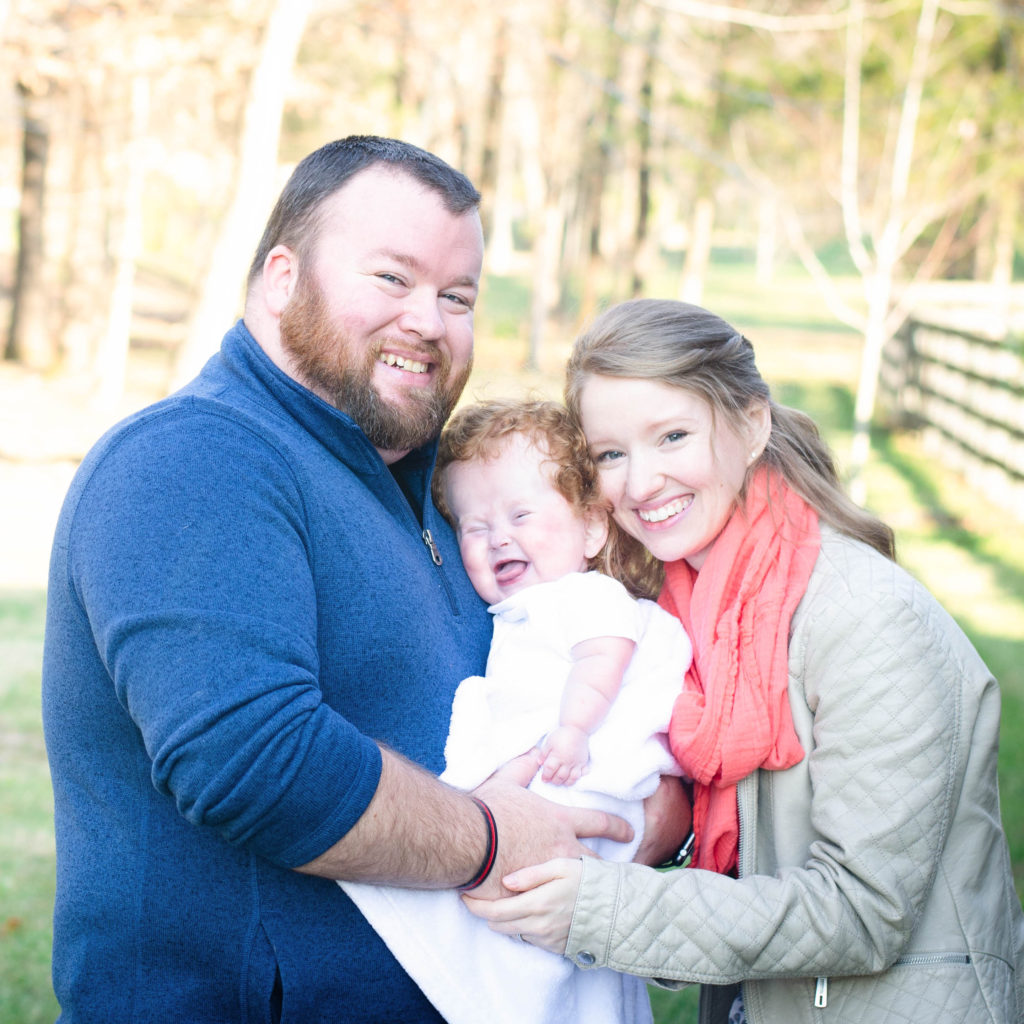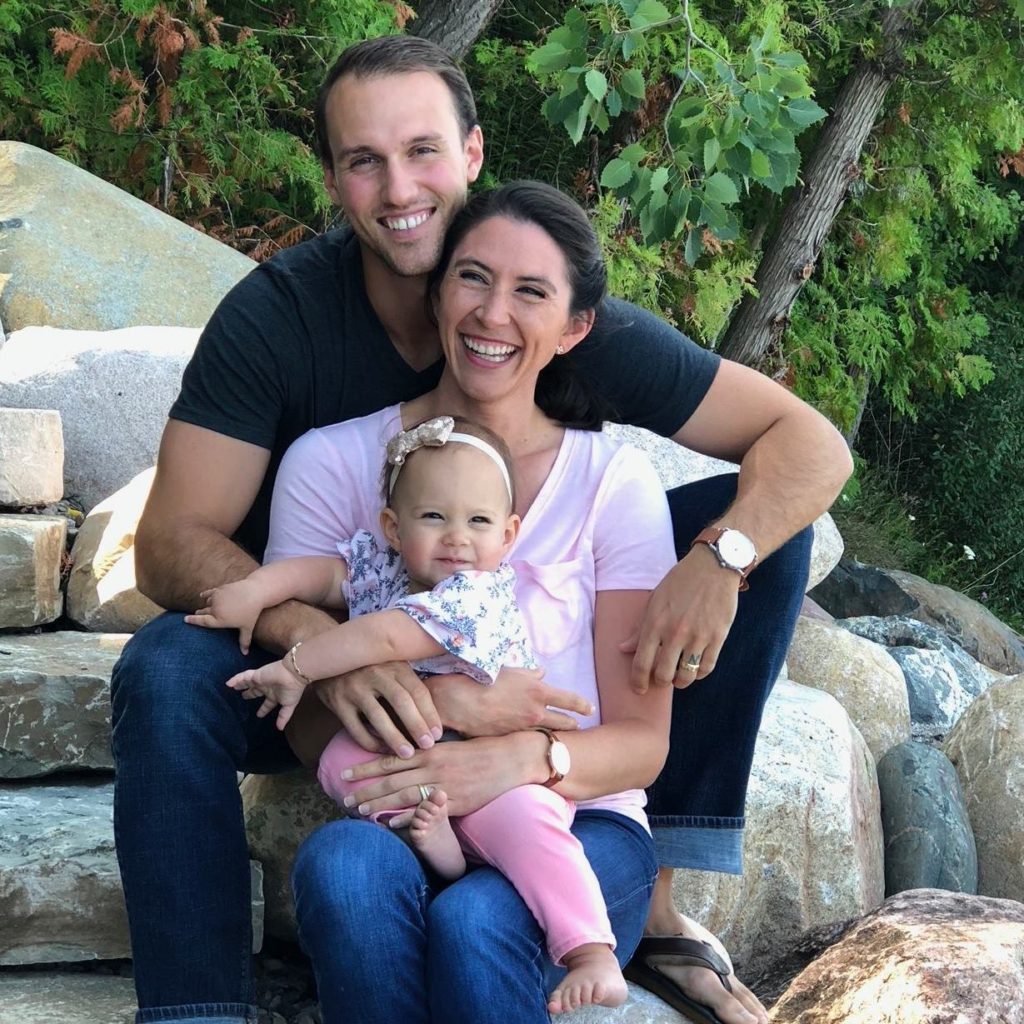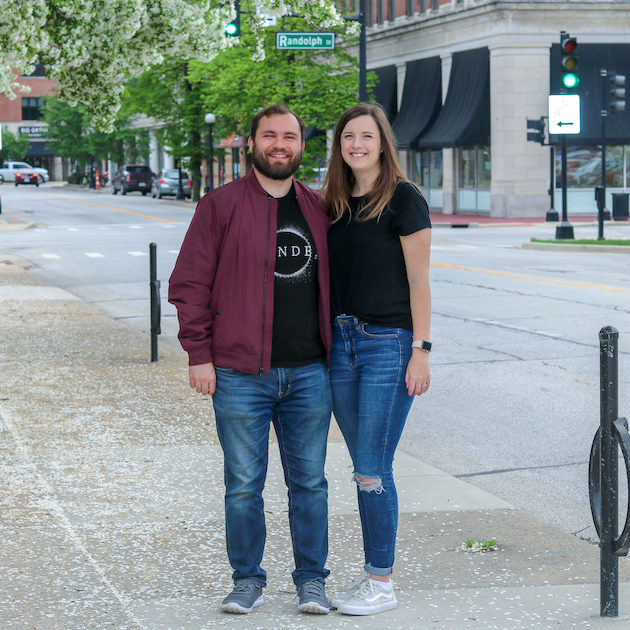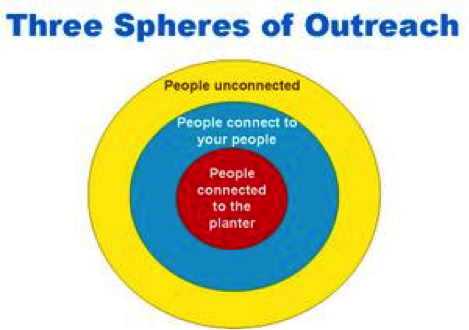


Ways to Appreciate Your Pastor
Pastors are a gift from God. That’s why we love that the month of October is Pastor Appreciation Month. This year has been extra tough on them. I can only imagine what pastoring through a pandemic would be like. Making a decision to close when it first began, deciding whether or not to reopen, figuring out how their staff was going to work from home, and that doesn’t even include pastoring to the congregation or counseling.

Your church is reopening and trauma is coming
I had always believed church to be a safe place. Through years spent attending and pastoring various churches, I developed a deep love and respect for the local church. But I would soon learn that church isn’t really safe at all.
Two major events stole my feeling of security. First, my wife of 20 years succumbed to breast cancer. Second, 10 years later, my 21-year-old son, Taylor, was the victim of a homicide. Both scenarios were very public.
As a pastor, I felt I was living in a fishbowl. Suddenly, the church was no longer a refuge. It became a frightening place that seemed too fearful to manage. Leaders didn’t know what to do. Congregants descended on me. I wanted to hide.
Like many other lead pastors, I have discovered working during this COVID-19 pandemic is difficult. We pastors are facing unprecedented situations and flailing in the dark for solutions, but congregants are hurting, too. Trauma has reared its ugly head, and it’s not going away.
As your church reopens, you will see hurting and damaged people coming through your doors. Not only are they dealing with current hardships brought on by the pandemic, but past trauma has been triggered in many of them.
According to a recent article in Medical News Today, “The COVID-19 pandemic has many potential sources of trauma, such as experiencing the death of a loved one. For some people, this can lead to post-traumatic stress disorder (PTSD). It can also exacerbate existing PTSD symptoms.”
Congregants, like everyone else, are hurting. Here are some suggestions to help you make your church a safe and loving place as you begin to meet again.
Practice the art of presence
As pastors, we feel we have to say the right thing. People are continually looking to us for advice, and even when we aren’t sure what to say, we mumble something that sounds very pastoral. When a person is experiencing trauma, it’s often better not to say anything.
In Romans 12:15, we are commanded to “rejoice with those who rejoice, and weep with those who weep.” In Job 2:11-13, we notice that Job’s friends ministered to him in silence: “And they sat with him on the ground seven days and seven nights, and no one spoke a word to him, for they saw that his suffering was very great.”
The most meaningful way others comforted me during the darkness of my suffering was simply by being present. Some would walk by and just touch my elbow. That gesture said, “I am here if you need me.” Others would pray or offer to care for the kids to give me a break.
Whatever the case, they weren’t demanding anything of the sufferer or looking for quick fixes. They were practicing the art of presence.
When one of my staff members lost a son to suicide, I had nothing to say. So, I just sat with the family for hours. It’s all they needed and wanted. I have repeated that practice over the years, and it has become a joy to simply be. Your presence will speak volumes to one who is suffering.
Talk about your suffering
A powerful way to help your congregants deal with their suffering is to talk about your own. Pastors do suffer, and it is nothing to be ashamed of.
Charles Spurgeon, the “Prince of Preachers,” said, “I would go to the deeps a hundred times to cheer a downcast spirit. It is good for me to have been afflicted, that I might know how to speak a word in season to one that is weary.”
A powerful way to help your congregants deal with their suffering is to talk about your own.
He understood that a congregant could find healing when he knows that his pastor understands his pain. When I share what it was like to raise three young children after losing a wife, receiving a call in the middle of the night from homicide detectives, and wading through press conferences and television interviews, I have the congregants’ attention.
It’s not to glorify me. It’s to find common ground with them.
I can’t count the number of funerals I’ve officiated where I’ve simply said to the family, “I have been where you are.” Instantly, they see me as a real and vulnerable person. I am no longer the holy man or a hired gun in their eyes. I have their ear. I can minister to them in a deeper way.
Trauma is coming through your door. Don’t be afraid to talk about your struggles and how the pandemic has affected you. Give your flock a pathway toward healing.
Don’t assume anything
When you look out and see smiling faces in your worship center, it’s easy to assume they’re all doing well. But they’re not.
A recent Washington Post article chronicled the massive damage that’s been done by COVID-19. According to the story, “Three months into the coronavirus pandemic, the country is on the verge of another health crisis, with daily doses of death, isolation and fear generating widespread psychological trauma. Federal agencies and experts warn that a historic wave of mental-health problems is approaching: depression, substance abuse, post-traumatic stress disorder and suicide.”
Allow your shepherd’s heart to take you deep into the suffering of another. This is what you are called to do. It’s the most gratifying part of ministry.
Churchgoers are experts at pretending. They can make anyone believe anything for a couple of hours on Sunday morning.
But it’s a mistake to think there’s not deep-set pain behind the masks, literally and figuratively. It is up to the shepherd to help make the church a safe environment for people to express true hurt and pain.
Jesus could see the coming pain Jerusalem would experience because of her rejection of him. This caused him great distress.
His shepherd’s heart shows through in Luke 19:41-42: “And when he drew near and saw the city, he wept over it, saying, ‘Would that you, even you, had known on this day the things that make for peace! But now they are hidden from your eyes.’”
Allow your shepherd’s heart to take you deep into the suffering of another. This is what you are called to do. It’s the most gratifying part of ministry.
Trauma is real, and it is prominent in people’s lives. Don’t let this opportunity go by because you assume everyone is OK.
Train your flock
COVID-19 has offered a wonderful chance to train others to care for the flock. This training really isn’t optional.
Paul commanded believers to pass along their knowledge to others. In 2 Timothy 2:2, the apostle wrote, “…and what you have heard from me in the presence of many witnesses entrust to faithful men, who will be able to teach others also.”
New and emerging resources are available to help you do this. I am honored to host a podcast entitled LifeSupport, which is available on the Faith Radio network of stations. The podcast’s goal is to help trauma sufferers find more of Christ and to help the Christian community learn how to come alongside them.
Five Stone Media is doing excellent work in this area, equipping ministry leaders to help those who are suffering. There are also many other resources, such as Stephen Ministries and GriefShare.
The point is: Don’t struggle to deal with congregants’ trauma on your own. Allow others the blessing of helping you.
Help your people find Christ in suffering
Times are hard, which means it’s the perfect opportunity to introduce the concept of Christ’s glorious work in suffering. It is within suffering that Jesus shows himself in a way that is magnificent and life-changing.
Many a night I’ve lain in bed and felt unbearable pain. It seemed darkness was winning.
When trauma comes through your door, Christ will be waiting to do miracles and bring a deepening of faith to your church you’ve never imagined.
To combat this sense of descending into darkness, I would listen to faith-filled music and pray. Without fail, Jesus emerged. He did not take the pain away, but I’ve learned to love and trust him in a new and powerful way.
It is through pain that we find unshakable faith and learn to obey God’s commands. The psalmist wrote: “It is good for me that I was afflicted, that I might learn your statutes” (Psalm 119:71).
I am committed to ushering my flock into God’s throne room by means of their suffering. When trauma comes through your door, Christ will be waiting to do miracles and bring a deepening of faith to your church you’ve never imagined.
Take care of yourself
Finally, in the midst of this pandemic, pastors are struggling. I must admit, I am terrible at self-care, but I am working on it.
You will have nothing to give your sheep if you are burned out, angry and frustrated. Pastoral fatigue is real, and we all suffer from it.
You need to watch out for your body and mind. Satan attacks pastors, and he is after you. We all know this.
1 Peter 5:8 offers this reminder: “Be sober-minded; be watchful. Your adversary the devil prowls around like a roaring lion, seeking someone to devour.”
I pray God will help you make your church a safe place where congregants can discover the love of Jesus amid suffering. Please take this seriously. Make no mistake about it: Trauma is about to come through your door.

September Church Planter of the Month
This month we highlight Charley Dever who is planting in Knoxville, TN. Charley moved from Chicago area and was in the midst of building a launch team and then COVID-19 happened. He didn’t stop, and now they are launched! Love how he is doing discipleship stuff to build the launch team.

August 2020 Church Planter of the Month
July 2020 Church Planter of the Month
Each month we highlight a church planter in our movement. In July 2020 we celebrate with Pastor Joshua Young who leads Redeeming Hope. A handful of people just came to Christ through his ministry and we couldn’t be happier for this new life!

Getting Ready for the “New Normal”
We all know we’re in an unprecedented time. We hear about it on the news. It’s in ads all around us. We’re living it daily both at home, at work (nowadays, these are the same place) and at our place of worship. As we are closer and closer to gradually moving on to the next phase, we can’t help but look to the future. What do we need to do to get ready for the “New Normal”?
Our strategic partner Warehouse Direct has put together a list of areas to look at in your church as you get ready to define what your “New Normal” looks like. And don’t worry, they have experts on hand to help you navigate the whole way.
Set Up for Social Distancing
Reopening safely means looking at your workspace and the common areas of your church to ensure they are optimized for social distancing. We’ve created effective spaces for many clients and can help you adapt your facility for today’s guidelines. Some things to think about:
- Do you have open seating areas that require barriers?
- Do you need additional permanent or movable partitions?
- Do you need to add barriers at the end of the aisles?
- Do you need barriers for in-person meetings?
- How will you handle in-person collaboration?
- Do you need to look into easily cleanable surfaces?
- Do you need signage or floor decals to direct traffic, tape to mark off seating for social distancing?
Prepare for Protection and Prevention
Infection control is going to be a key factor when you reopen. Incorporating health screenings, keeping PPE supplies ready, adding hands-free dispensing, and reducing touchpoints are essential. Look to us for solutions that help minimize transmission. Some areas to consider are:
- Is your bathroom optimized with hands free paper dispensers instead of air dryers?
- Do you have hands free soap and hand sanitizer dispensers in your bathrooms, kitchen, entrances?
- Have you thought about installing foot pedals on your doors (especially bathrooms) to open without contamination?
- Will you need to upgrade existing food service items like individually wrapped disposable utensils?
Make Clean a Priority
Cleaning is critical to providing a safe transition. In addition to disinfecting, sanitizing, and hand hygiene, what cleaning products do you need for the “new normal”? Some things to think about:
- You’ll probably need to increase your cleaning schedule. Do you have a written checklist so all areas are cleaned?
- Are there cleaning machines you need to help keep productivity high without adding labor?
- Are you fully stocked with sanitizers, disinfectants, soaps, and cleaning supplies?
- How are you going to keep your spaces more organized for easier cleaning?
Plan for Safety Supplies
PPE, disinfectants, and sanitizers will now be an office staple, and you’ll want at least a 30 to 60 day supply to avoid running out of difficult to find products. Our storage, dispensing, and disposal solutions will help you manage these supplies and provide easy access in public areas and at personal workspaces. Some areas to consider are:
- Do you have a stock of PPE supplies like masks or face shields?
- Do you know the different brands of sanitization wipes or hand sanitizer that is available?
Communicate Clearly
Gathering places are changing and it will be important to keep your congregation and workforce informed of the new safety requirements for anyone visiting your church. Our signage and whiteboards are a smart way to communicate new protocols, social-distancing reminders, cleaning guidelines, hallway traffic flow, and more.
- What are the areas that require additional signage?
- Do you have areas where people naturally line up or congregate around?
Ready to get situated for the “new normal” in your church?
Contact: Debbie Cladis, your Warehouse Direct Account Manager to discuss solutions for your phased in facility reopening plans.

Don’t Forget to Pray
As much as I would love to hit the reset button on 2020, that isn’t going to happen. So instead of focusing on what “isn’t” right with 2020, I have instead begun to ask the question, “God, what are you trying to teach me?” I believe he’s teaching me at least two things:
First, I believe God is reminding me that my home Is not here, but rather in heaven. The Apostle Paul says in Philippians 3:20 “Our citizenship is in heaven. And we eagerly await a Savior from there, the Lord Jesus Christ.” I say I’m looking forward to heaven, but do I really live that way? I have a nice place to live, great job, lots of food, many friends and an amazing family. God is showing me that I have become too comfortable with my “home” here on earth. Brothers and sisters, I believe God wants us to be reminded that we have a mission to accomplish here on earth, but we are not citizens here, and we must live each day with a longing to arrive at our real home that awaits us in heaven!
Secondly, God has been convicting me that in all of my conversations about the difficult things we are dealing with as a country, I am not spending near enough time focusing on prayer as a critical piece of the solution. Am I putting a priority on prayer that formulates everything I do in my personal life, my church life, and my work in Converge MidAmerica? We started three years ago a ministry called Prayer First! It was a reminder to all of us in Converge MidAmerica that we needed to put a priority on prayer as first importance. I can honestly say that I have not been living with that first of all priority like I need to.
What about you? Is prayer a first of all priority for you as you continue to dialogue with others? Is prayer a priority for your church as you continue to struggle through what’s next for your “new normal”? As the early church was formed and expanded in ways that can only be described as incredible, it was marked by a concerted effort of prayer. Not just token prayers, but nights of prayer, days of prayer, seasons of prayer and God moved! Are we praying like that?
Ephesians 6 reminds us in the explanation of the armor of God that all the pieces of armor are put on with prayer. “Pray in the Spirit on all occasions with all kinds of prayers and requests. With this in mind, be alert and always keep on praying for all the saints.” (6:18) Brothers and sisters, let us, as a movement of churches, pray on all occasions with all kinds of prayer. Let us look for ways to wrestle with God in prayer. Let us look at our schedules, our thoughts, our activities and make sure they are saturated in prayer. Let us keep striving to make “Prayer First”!

Relaunch Coaching Cohorts Reach 100+ Churches
Over 100 churches participated in our 4 -week Relaunch coaching cohorts. Using Zoom, all participants gathered in a large group, focusing on insights of relaunching in light of COVID-19.
The real power of the coaching cohorts happened in smaller group settings. Each small group had a coach that facilitated discussion based on worksheets. Every church has a unique context, so each pastor was given the opportunity to work at analyzing and implementing a 90-day plan to relaunch. Each pastor developed a plan they believed would work best for their church, and in sharing their ideas created a beautiful synergy of pastors learning from one another.
Relaunch was a great example of churches being “better together,” and we are confident that the time and effort spent in this coaching cohort will have a significant Kingdom impact.
If you missed Relaunch, you can download worksheets and watch sessions on-demand on our website.

Join us for a Prayer Gathering

COVID-19 Guidance for Places of Worship (Illinois)

User-Generated Content for your Social Media
If you’ve read any of our other posts about ideas for social media posts, you know we recommend posting a lot of photos of your congregation to your church’s social media. In these days of online church, however, we have fewer opportunities to take photos of congregations to post on social media. However, we have a great opportunity to involve more people than ever before in our social media posts by soliciting user-generated content. Here are a few ideas for user-generated content your congregation can submit for your church’s social media.
1. Kids!
Ask parents to send in pictures of their kids participating in your church’s children’s curriculum. After all, what parent doesn’t love an excuse to take a picture of their kids?
2. Sunday View.
During your online service, invite congregants to snap a picture of their view of church from home. This could include families in pajamas, coffee tables and televisions, kids huddled around laptops, or any other settings from the homes of your viewers.
3. Online Groups.
Invite your small groups to take a photo or screenshot of their small group on Zoom, Google Hangouts, or however they meet.
4. God Sightings.
Ask your congregation how they’ve seen God at work in their lives. Take those stories and (with permission) share them on social media to encourage your community.
What kinds of content are you posting in the days of online church?
(P.S. These content ideas are inspired by our friends at SundaySocial.tv)

Lee & Cinnamon’s Faith Testimony

Spreading the Message through Technology

God at Work in our Churches in the midst of COVID-19

Easter Celebrations from Across the Converge Movement

Hacks for Improving your Online Services

This Week’s Zoom Links
We are offering 7 different breakout opportunities throughout the week. You can jump in on any of these Zoom calls for an opportunity to encourage each other, share ideas and pray together. All times are central time zone.
- Tuesdays at 1pm CST
- Tuesdays at 3pm CST
- Wednesdays at 9am CST
- Wednesdays at 2pm CST
- Wednesdays at 2:30 CST
- Thursdays at 10am CST
- Thursdays at 12pm CST
Please be encouraged to join any call. You might even choose to join more than one during the week to glean from others.

Pastoral Leadership in the Midst of a Crisis
Ed Stetzer recently made a passionate appeal to church leaders saying, “This is not the crisis, we are weeks away from the real crisis.” The crisis is not that we cannot meet for worship or small groups—the crisis is not that our churches are losing revenue or our church mortgages cannot be paid. The crisis is quickly becoming a life and death situation that must be taken with the utmost seriousness, courage and faith that is fused with undeniable hope in the love of God.
So how should we respond as Christian leaders?
I think we need to address the why’s before we figure out the how’s in order to have a clear biblical framework to guide us through this unprecedented season. Once we understand the nature of our calling as followers of Jesus and our duties as leaders, then we will be better able to perform the responsibilities God has set out for us.
Paul speaking to Titus, a regional leader whose task was to strengthen this growing yet fledgling movement of churches on the Island of Crete, writes, “The reason I left you in Crete was that you might put in order what was left unfinished” (Titus 1:5). The term “put in order” or “straighten out” comes from the same word that we get the words orthodontics and orthopedics. The orthodontist puts braces on your teeth to straighten them out. The orthopedist puts on a cast or a brace so that your bones will heal, mend, and be strengthened.
Titus was to provide braces that would strengthen this immature movement of churches, which could, at that time, be up to one hundred churches on this island.
Paul gives Titus three braces that he was to provide to strengthen the churches in this movement:
- Appoint qualified leaders in every town (Titus 1:5-15).
- Promote sound doctrine (Titus 2:1-10) and gospel-centered living (Titus 2:11-14).
- Remind people how to live missionally in this world (Titus 3:1-15).
Titus’ commission involved re-establishing the basic foundations of the church to gospel-centered churches that saturate the Island of Crete and beyond. Grasping this context helps us as leaders in this pandemic crisis wrestle with ways to promote responsible citizenship through our churches.
Seven Qualities of a Remarkable, Gospel-Centered Citizen.
Paul writes, “Remind the people to be subject to rulers and authorities, to be obedient, to be ready to do whatever is good, to slander no one, to be peaceable and considerate, and always to be gentle toward everyone” (Titus 3:1-2).
First, Paul addresses the importance of this subject by using words of urgency. He writes, “Remind the people…” (vs 1). To paraphrase Paul, he is saying, “Pastor, this means you must keep on continually reminding your people of the principles and qualities of what it means to be a remarkable, gospel-centered citizen in a pagan culture.”
Let consider Paul’s seven virtues of a remarkable, gospel-centered citizen:
- Submissive in attitude. He writes, “to be subject to rulers and authorities.” We voluntarily subject ourselves to government authorities because we believe that they are put in place sovereignly by God (Romans 13:1-7; I Peter 2:11-17). Understanding that the Island of Crete was under the ruthless rule of the Roman Empire, they were to submit to the reasonable and responsible rule of the government as long as it did not cause them to violate the laws of God. Peter and John refused the order of the Jewish officials to stop teaching in the name of Jesus by stating: “We must obey God rather than human beings!” (Acts 5:29). Here is where ‘the great commandment and great commission rule,’ helps discern when civil disobedience is necessary. You may ask yourself: Is my government asking me to reduce my love for God and my love for my neighbor? Or is my government asking me to stop proclaiming the good news of Jesus? In this pandemic crisis, I see neither. So, I would encourage us to do all we can to submit to the guidelines of social distancing while looking for more ways to connect with neighbors to share the hope of Jesus in this challenging season.
Question: Are your church members fighting or submitting to the guidelines proposed by the federal, state and local authorities?
- Obedient in behavior. Paul writes, “to be obedient.” We are not only to be submissive in attitude, but we are to be obedient in our actions. Paul writes, “This is also why you pay taxes, for the authorities are God’s servants, who give their full time to governing. Give to everyone what you owe them: If you owe taxes, pay taxes; if revenue, then revenue; if respect, then respect; if honor, then honor” (Romans 13:6-7). The Apostle Peter offers these same thoughts, “Live as free people, but do not use your freedom as a cover-up for evil; live as God’s slaves.Show proper respect to everyone, love the family of believers, fear God, honor the emperor” (I Peter 2:16-17). We, as Christian citizens, should be the highest examples of responsible citizenship because we want to point people to the true King, Jesus Christ, the Risen Lord, and Only Savior.
Question: Do you agree with the statement that Christians should be the highest examples of responsible citizenship?
- Benevolent in spirit. He continues, “…to be ready to do whatever is good.” It is interesting that three times he repeats this charge (vs 1, 8, 14). Paul moves our responsibilities from a passive posture (submission and obedience) to a proactive position of blessing the world around us. Peter, in the context of believers submitting to authorities, writes, “Live such good lives among the pagans that, though they accuse you of doing wrong, they may see your good deeds and glorify God on the day he visits us…For it is God’s will that by doing good, you should silence the ignorant talk of foolish people” (I Peter 2:12,15). Being right in line with the teachings of Jesus: That we are to be salt and light in this world, “…that they may see your good deeds and glorify your Father in heaven” (Matthew 5:13-15). May the world see the beauty of Jesus through the scattered church, and may their heart be captured by the goodness and greatness of our God.
Question: How are you as the pastor promoting responsible benevolence to the needy in your community?
- Speaks well of everyone. Paul continues, “to slander no one…” (vs. 2). Paul expands his instructions beyond our relationship with the rulers or authorities to be all-inclusive by using the terms “no one” and “everyone.” The word slander here is the same word for blasphemy. The Bible is very serious when it comes to speaking evil of or maligning God (Leviticus 24:16; Numbers 15:30; Mark 3:29). It is just as serious about speaking evil or contemptuously of people created in the image of God. Jesus said, “But I tell you that anyone who is angry with a brother or sister will be subject to judgment. Again, anyone who says to a brother or sister, ‘Raca,’ is answerable to the court. And anyone who says, ‘You fool!’ will be in danger of the fire of hell” (Matthew 5:22). The terms’ Raca’ and ‘you fool’ were slanderous and contemptuous words against another human being that bring with them the judgment of God. It is interesting that the scriptures teach us to remove all evil slander from our vocabulary (Ephesians 4:31; Colossians 3:8) and to replace them with holy and godly prayers for all people. Paul writes, “I urge, then, first of all, that petitions, prayers, intercession, and thanksgiving be made for all people—for kings and all those in authority, that we may live peaceful and quiet lives in all godliness and holiness. This is good and pleases God our Savior, who wants all people be saved and to come to a knowledge of the truth” (I Timothy 2:1-4).
Question: How are you encouraging responsible rhetoric and focused prayers for leaders, authorities and all people?
- Is peaceable. Paul writes, “…to be peaceable” (vs. 2). Interestingly, the actual translation is negative, ‘don’t be a brawler’ or ‘cease fighting.’ I am sure just as in Paul’s day as well as our own; there was a lot of anger stirred up while living in an unjust pagan culture. The human cruelty and blatant disregard for justice is so unnerving. The lack of common sense and the neglect of true wisdom can drive followers of Jesus mad at times. Yet the Bible instructs us, “If it is possible, as far as it depends on you, live at peace with everyone” (Romans 12:18). To live at peace means to be at peace. Peace is a settled confidence that comes from being right with God (Romans 5:1), which leads one to experience inner tranquility, relational poise, and a profound sense of being protected (Philippians 4:8). As followers of Jesus, we must refrain from adopting “the arts of the agitator.” [1] Yet from a position of inner peacefulness, we should bring words of peace into our conversations that deescalate the situation while seeking ways to present the gospel of peace to an unsettled world. In a day when conflict and controversy are leveraged to sell anything, we as followers of Jesus should rise above the fray and be reasonable and peaceable people.
Question: What are you as a pastor doing to promote peace in the midst of all this crisis?
- Practice consideration for others. Paul uses the word “considerate” (vs. 2). This word is the outward expression of gentleness. When we put the concerns for others above our own rights we are being reasonably forbearing, patiently kind and sweetly considerate. This is very personal to the Cretans, who were described earlier as “Cretans are always liars, evil brutes, lazy gluttons” (Titus 1:12). They were known as being uncivilized barbarians, who exhibited the unrestrained indulgence of wild and ferocious beasts. Yet as new followers of Jesus they were to take on the gentle character of their Savior (Matthew 11:29) and follow his example of relinquishing their personal rights for the betterment of others (Philippians 2:5-12). The Bible appeals to us, “Let your gentleness be evident to all” (Philippians 4:5). We are not to respond as evil brutes always fighting for our rights but as respectful, considerate, and gentle people. The Apostle Peter says this demeanor is what makes our testimonies attractive. He writes, “Always be prepared to give an answer to everyone who asks you to give the reason for the hope that you have. But do this with gentleness and respect” (I Peter 3:15). The message of the gospel becomes more apparent when the power of the gospel comes alive through our firm convictions and sweet consideration of others.
Question: How are you as a pastor encouraging considerate behavior for the purpose of making the gospel attractive to your community?
- Humble in attitude. Paul finishes this list, “and always to be gentle toward everyone.” Whereas consideration is the outward expression of gentleness, here it speaks of the inward attitude of humility, which is the foundation of all our behaviors. Andrew Murray wrote, “The root of all virtue and grace, of all faith and acceptable worship, is that we know that we have nothing but what we receive, and bow in deepest humility to wait upon God for it.” [2] To reinforce this posture of humility, Paul reminds them of where they came from and how God’s mercy alone saved them. He writes, “At one time we too were foolish, disobedient, deceived and enslaved by all kinds of passions and pleasures. We lived in malice and envy, being hated and hating one another” (Titus 3:3-4). One historian used the following words to describe the Cretans, ‘a turbulent race,’ ‘fighting amongst themselves for generations,’ ‘whose rebellious propensities seemed to be unquenchable,’ ‘always producing disorder’ and possessing a ‘factious and seditious spirit.’ Yet this is where the gospel met them. Paul continues, “But when the kindness and love of God, our Savior appeared, he saved us, not because of righteous things we had done, but because of his mercy. He saved us through the washing of rebirth and renewal by the Holy Spirit, whom he poured out on us generously through Jesus Christ our Savior, so that, having been justified by his grace, we might become heirs having the hope of eternal life” (Titus 3:4-7). In Paul’s mind, there is no room for pride in our lives, only room for humble gratitude.
Question: How are you as a pastor modeling and promoting a spirit of humble dependence on the Lord during this crisis?
Why are we called to be remarkable, gospel-centered citizens?
Paul answers that question, “This is a trustworthy saying. And I want you to stress these things, so that those who have trusted in God may be careful to devote themselves to doing what is good. These things are excellent and profitable for everyone” (Titus 3:8).
Our beliefs should always impact our behavior. As recipients of God’s mercy, we are called to be merciful to others. As followers of Jesus, we should be taking the lead in doing good to others and not dragging our heals while others take the lead.
Paul wants Titus “to stress these things.” There is a heightened level of urgency in Paul’s words that we read earlier. He wants him to courageously and confidently teach this immature movement of churches not only to proclaim the gospel but to live out the gospel for the benefit of every person on the Island of Crete.
Pastors, church leaders and every follower of Jesus, this is our time to shine, this is our time to stand out, this is our time to be kind, merciful and fearless all in the name of Jesus the Risen Lord and only Savior.
So, let us all be remarkable citizens! Let us be humble, considerate and peaceable! Let us be live, breathe and speak the gospel! Let us lead the way by being eager to do good!
[1] Hiebert, D. E. (1981). Titus. In F. E. Gaebelein (Ed.), The Expositor’s Bible Commentary: Ephesians through Philemon (Vol. 11, p. 443). Grand Rapids, MI: Zondervan Publishing House.
[2] Murray, Andrew. (1997). Humility: The Beauty of Holiness (pg. 29). Fort Washington, PA: CLC Publication.

Never Preach to an Empty Room
I never thought the day would come, that due to COVID-19 every pastor in America would be forced to do what I’ve been doing for the past 10 years. You see, early on when Grace Church decided to go multi-site, we also decided to take an unconventional approach to video preaching. We chose not to record the sermon at a Saturday night service in front of an audience, instead, I would preach on Wednesday mornings. And yes, aside from a small crew of one or two people, the room would be completely empty. But, I learned an important lesson early on in this process. NEVER preach to an empty room. Instead, I always preach to the REAL PEOPLE on the other side of the camera. I found it too frustrating and too fake to try to hold the illusion that I was preaching to imaginary people in a cavernous room. Instead, week after week, I stare down the lens, looking into the camera and into the faces and souls of my congregation. I also understand that each week there is an internet audience and individuals who will watch the archive version of the message months and maybe years after I deliver it. Since we have a preaching team, I have developed a list over the years of 10 tips and tricks for preaching through the camera that serves as a resource for everyone who preaches at Grace. Since all pastors across the country are now in the same boat, I thought I’d share it with you!
10 Tips for Preaching THROUGH the Camera:
- Talk faster than you think you should. A quicker delivery helps to hold people’s attention.
- Voice inflection is particularly important. You can be more passionate and animated than feels natural.
- Keep your eyes on the lens as much as possible – don’t look around at the imaginary crowd.
- Utilize visual aids whenever possible. Pictures, video clips, full screen quotes all help break it up and keep it interesting.
- Explain all personal/geographical references: ie. Instead of “Kim and Caleb,” say “my wife Kim and my son Caleb…” instead of “We went to 1201” say “we went to a local restaurant called 1201.”
- Briefer is better. There is a limit to how much preaching people will endure on screen. The standard at Grace is a 30-minute video sermon.
- If you are using notes on a podium or an iPad – the camera shot should be wide enough to include those things so that people can see what you’re looking down at. The use of a teleprompter is preferred so that eye contact can be maintained with the camera.
- Nervous gestures and body language are amplified on the screen.
- Pause for expected laughter. It’s a little risky (especially if you aren’t as funny as you thought you were going to be), but when you keep chugging along with your next point while people are still laughing at your last one – it is a stark reminder that you’re on a screen.
- Imagine specific people. Both as you are preparing and as you are delivering your sermon to the camera it’s helpful to remember specific people and their anticipated reactions and questions to what you are saying.
I’m praying that the word of God goes forward in unprecedented ways during these unprecedented times!

Fasting Resources
Fasting Definition
Fasting is deliberately abstaining from the normal routines of life for the purposes of spending focus time in prayer and the study of God’s word as we seek to align ourselves with God’s purposes.
Articles
Prayer and Fasting in the Pastors Life – Ronnie Floyd
Revival & Fasting – John Piper
Why should I Consider a Social Media Fast? – Kevin DeYoung
Quick Study on Fasting – Gary Rohrmayer
Eight Basic Guidelines for Fasting – Gary Rohrmayer
Your Personal Guide to Fasting and Prayer – CRU
Being in Tune with the Supernatural though Fasting – Ronnie Floyd
Strengthening our Prayers through Fasting – Gary Rohrmayer
Bill Bright’s Fasting Testimony
David Brainerd’s Fasting Testimony
Sermons
John Pipers Sermons on Fasting
Tony Evans Sermons on Fasting
- The Importance of Fasting
- Fasting For Deliveranc
- Fasting For Burden
- Fasting For Protection
- Fasting For Needs
- Fasting For Mates
- Fasting For Marriage
- Fasting For Healing
- Fasting For Guidance
- Fasting For Revival
- Fasting For Ministry
- Fasting For Intimacy
- Fasting For Justice
- Fasting For Power
James McDonald – Video
Fasting For a Spiritual Breakthrough – Elmer Towns
Breakthrough – NorthBridge Church
Fasting for a Spiritual Breakthrough – Gary Rohrmayer
Power of Fasting Together – Mark Albrecht
Readying Ourselves for a Breakthrough – Mark Albrecht
First: Priority Determines Capacity – Heartland Church
Start Now! – Darryn Scheske
21 Days Of Prayer & Fasting – Darryn Scheske
The Power Of Priority – Darryn Scheske
What Really Matters? – Darryn Scheske
Nothing To Lose – Jeffrey A. Johnson, Sr.
Seminars/Campaigns
Hunger for God Seminar – John Piper
The Daniel Plan – Rick Warren
Interviews
What is the Purpose of Fasting? – John Piper
How Can I Conquer Gluttony? – John Piper
Celibacy and Sexual Fasting – Tim Keller
Reading Plans/Devotional Guides
7 Basic Steps to Fasting and Prayer – Bill Bright
Fasting: A 30 Day Guide – Gary Rohrmayer
21 Day Challenge: Made to Crave
Books
Fasting for Spiritual Breakthrough – Elmer Towns
Fasting for a Financial Breakthrough – Elmer Towns
Hunger for God – John Piper
Hunger for God – John Piper (Free pdf)
God’s Chosen Fast – Arthur Wallis
The Power of Prayer and Fasting – Ronnie Floyd
The Daniel Plan – Rick Warren

Legal Opinion: Illinois’s Stay at Home Executive Order
In reviewing Illinois’s Stay at Home Executive Order 2020-10, it is my understanding that church gatherings of more than 10 persons is expressly prohibited by this order (See Clause 3). The Order requires all individuals to stay home in their place of residence, except for essential activities. In my reading of the order, church services are not exempted as essential, and the Illinois.gov COVID-19 FAQ’s specifically say that church services “will be cancelled.” Additionally, this Executive Order may be enforced by state and local police.
Social Distancing is required during essential activities (See Clause 15). Here are a few essential activities which are identified in the Executive Order:
– Clause 12.c. Organizations that provide charitable and social services, such as food, shelter, and other necessities of life for economically disadvantaged or otherwise needy individuals;
– Clause 12.q. Residential facilities and shelters;
– Clause 12.w. Funeral services.
Regular church services are not exempted. Additionally, educational institutions and restaurants shall not operate classes and meals on premises through April 7, 2020.
Executive Order 2020-10 is in effect Saturday March 21, 2020 at 5:00 pm through April 7, 2020.
I am providing this as a legal opinion. Please see below for links to Executive Order 2020-10 and related FAQ’s, which are both available at Illinois.gov.
https://www2.illinois.gov/Documents/ExecOrders/2020/ExecutiveOrder-2020-10.pdf
https://www2.illinois.gov/dceo/Documents/Stay%20at%20Home%20EO%20FAQ_.pdf
God bless,
Victoria D. Pipkin, Esq.
Attorney at Law
Converge MidAmerica Executive Board Member

Converge Coronavirus Resources

Top Ideas from Week Two of Coronavirus Quarantine

Top Ideas from Week One of Coronavirus Quarantine

Projects for Churches in Spring 2020 (in response to COVID-19)

Living Missionally in a Crisis

How Your Church Can Leverage Social Media in light of COVID-19

The Unprecedented Circumstances of COVID-19

5 Things Every Church should be Posting on Social Media

Strengthening Your Prayers through Fasting

3 Indicators of a Healthy Church

Does Your Church Need to be on Social Media?

How to Reach Our Increasingly Multi-Cultural Population

A month-long celebration for Grace River Church

Minister’s Assistance Program

Introducing: Barr 3M Solutions

What Does it Mean to Adopt a Church Planter

Residency Reflections – Joseph’s Story

Creating a Culture of Generosity

The Number One Reason We Are Sold Out for Church Planting

All In Resolution

6 Tips for a Year-End Offering

3 Tools for Self-Knowledge

Experience, Humility and Growth: A Church Planting Residency Story

Finding Rest in Busyness

How to Get the Most out of Connect

Make Kingdom Memories at Connect 2019

Is Your Church on Social Media?

Death, A Letter, and 7 Reminders about Pastoring the Dying

Converge MidAmerica Foundation in Japan

Seven steps to empowering people in their giftedness

The art of neighboring

Converge responds: El Paso, Dayton tragedies

Story of hope from R Church

How To Conduct A Financial Audit

Passing the baton

Creating spiritual momentum in your church

Building a Vision through Faith: Grace River Church’s Story

Newest Church Planters – 2019

Five ideas for beating the summer giving slump

Church health is a serious issue

Three benefits of taking the Natural Church Development survey

What Are Together Groups?
When we say we are better together, we really mean it! Last year, a group of churches in Michigan was looking for opportunities to connect with each other, but in a way that wasn’t only geared toward fellowship. They wanted a missional gathering where they could work together to advance the vision of Converge MidAmerica and its leaders.
To put that into practice, this past January our district started a pilot program called Together Groups. These groups have enabled us to encourage our pastors of church plants and established churches to connect with and learn from one another. Our Together Groups meet for the purpose of seeing Christ’s kingdom expanded in their area of the region and to move toward our collective goal of seeing 400 strong, reproducing churches by 2027.
Since January, we’ve expanded from six to nine groups and have over 70 total attendees. Each group is comprised of seven or eight Converge MidAmerica pastors from the same region. Our nine regions are Mid-Chicago, South Chicago, Western Illinois, Indy, Greater Detroit, Grand Rapids, Kalamazoo, Northern Michigan and St. Louis.
Each Together Group is facilitated by a regional leader who helps ensure that the discussion is broken down into the five predetermined sections.
- First, pastors check in with one another to hear about the “heartaches and hallelujahs” of their ministry.
- Then, they pray together with praises and requests, especially focusing on how God is moving in their region.
- Next, they have a time of teaching, which could be discussing a book, watching a video or having someone share about his area of expertise.
- After that, the discussion turns toward our four “Each One” statements: Each One Reach One, Each One Raise One, Each One Start One and Each One Send One. This is the heart of the time together and focuses specifically on encouraging each other and partnering together to see Christ’s kingdom expanded.
- Lastly, the group wraps up by talking about action steps and creates a clear plan in order to move forward with purpose.
In order for everyone to be on the same page, group members agree to a covenant ensuring their commitment, confidentiality, authenticity, value of the overall agenda and promise to work toward advancing the kingdom together. This allows all participants to be striving toward the same goal.
We have seen the Together Groups empower and encourage our pastors over the past few months. A participant in our St. Louis group said, “You can go further in every area of life with a team. Together Groups equip you and your ministry to take the next step as you lead your church to greater effectiveness for the kingdom cause!”
Shane Prewitt, the leader of the Grand Rapids group, said, “While we are still learning many things about how to maximize the missional aspect of our group, the friendships that have been born and the coaching and encouragement that we have received have been life-giving. No matter how busy my schedule may be, the two hours I spend with my Together Group has become sacred territory that I do my best to protect every month.”
Our Together Groups are heeding the challenge of Hebrews 10:25 to “not give up meeting together, as some are in the habit of doing, but encouraging one another, and all the more as we see the Day approaching.” We are excited to see how the kingdom is impacted as our Together Groups continue to meet and encourage one another.

Four things you can do to keep your Easter crowd
Every church has a First Impressions Team — those who welcome greet and serve all who attend your public gatherings. But how many churches have a Second Touch Team — those who are responsible for following up and seeking to connect those new attenders into the life of the church?
Every pastor gets frustrated with the lack of retention from the Easter outreach. The development of a Second Touch Team can help reduce that frustration. Here are a few things you can do to ramp up your game in following up on your Easter guests.
1. Touch your guests within 36 hours of their visit in a meaningful way.
How will you WOW them? When you wow your first-time guests you communicate that you are serious about the mission Jesus has called you to and that people are important to you. The difference between growing churches and declining churches is in how they treat the first-time guest.
Think about how you will respond to the following people individually and personally:
- Those who fill out the communication card — how will you WOW them?
- Those who fill out a prayer request — how will you tell them they have been prayed for?
- Those who want more information on a certain ministry — how will they be contacted?
- Those who gave their first gift to the church — how will you thank them and encourage them in becoming regular givers?
- Those who register their children for children’s ministry — how will you recognize the children? What could you send them to WOW them and their parents?
Thom Rainer writes, “If a person visits your church for the first time, the probability of their returning a second time is considerably higher if you make contact with them within 36 hours of their visit.” Herb Miller takes it to another level, “When laypersons make 15-minute visits to the homes of first-time worship visitors within 36 hours, 85 percent of them return the following week.”
What are you willing to do to see people come back again and again?
2. Offer next steps or come-back activities for guests.
Make sure you clearly and passionately communicate the “why” behind the next steps as well as the “what.” Here are a few next steps or come-back ideas.
- Announce a new message series that will inspire them to come back.
- Announce a family friendly event that is fun, creative and connecting.
- Hand out the Spiritual Journey Guide so they visually see the next steps in discipleship.
- Offer a newcomers luncheon or dinner.
- Offer a seeker study such as Bible 101 or Christianity 101.
- Offer a serving opportunity within a church-wide community service project.
Remember the difference between leaders and followers is that leaders know the next steps. For good retention you will need to embrace the next steps principle.
3. Think about the next 30 days, not just the next seven days.
Allen Ratta writes, “The research shows the more a visitor visits a church the greater the odds are that they will eventually become a part of that church. Yet, churches consistently behave in ways that ignore this critical fact. For example, churches often place all of their efforts in the first-time visitor. Reality is that churches will receive a far greater return on investments that they make in second and third and subsequent visitors. What is lacking in many visitor assimilation efforts is the ability to direct and mobilize key resources to repeat visitors. Sustained follow-up is essential to effective visitor assimilation.”
- Second visit ideas
- Personal invitation to a family friendly event.
- Handwritten invitation to newcomers luncheon.
- Phone call by a volunteer asking, “How can we pray for you and your family?”
- Help them connect with a small group leader in their area.
- Third visit ideas
- Invitation to spiritual formation retreat or seminar.
- Invitation to attend a membership seminar or class.
- Invitation to Bible 101 or Christianity 101 small group.
- Send a brochure on the ways you will help them grow spiritually and serve in the church.
- Phone call from a staff person to help them take the next steps into the life of the church.
- Fourth visit ideas
- Set up an appointment to discuss where they are on their spiritual journey.
- Invitation to dinner with other newcomers at the pastor’s or staff member’s home.
What we measure reveals what really matters to us. - Invitation to serve on a ministry team.
4. Measure the effectiveness of your retention process.
Gary McIntosh cites the following research:
- A church must keep about 16 percent of its first-time guests to experience a minimal growth rate of 5 percent a year.
- Rapidly growing churches keep between 25 and 30 percent of their first-time guests. Declining churches keep only about 5 to 8 percent of their first-time guests.
Do you know how you are doing in retaining your visitors? The churches that track attendance, visitors and visitor retention are statistically the churches that are growing.
Conclusion
Take time this week to focus in and develop a plan for getting your Easter crowd back. This preparation will pay rich dividends not only for Easter but also for the rest of the year as you apply these practices to every Sunday worship experience.
Additional resources

David and Goliath: Are we teaching the wrong lesson?

Ignite: Building and developing leaders in the Latino community

Nine ways to create momentum for fall outreach

Three strategies of outreach

Raising your evangelistic temperature

Spiritual Warfare – Connect 2013 Opening Session
Pastor John Jenkins spoke at Connect 2013, Converge MidAmerica’s Biennial Meeting, to open the first main session. Pastor Jenkins is the lead pastor of First Baptist Church of Glenarden, a Converge church in Maryland.

Spiritual Warfare & Temptation – Connect 2013
Pastor Jeff Forester spoke at the opening session of Connect 2013, Converge MidAmerica’s Biennial Meeting on Spiritual Warfare & Temptation. November 14-15, 2013 at Moraine Valley Church, Palos Heights, IL.
Jeff is the founding pastor of Heritage Church, a multi-site church with campuses in Sterling Heights and Imlay City, MI.



 The church is already using the new location to help people meet, know and follow Jesus. On December 15, the church saw 20 people take the next step in their faith journey by being baptized. And 465 people attended the church’s three Christmas Eve services.
The church is already using the new location to help people meet, know and follow Jesus. On December 15, the church saw 20 people take the next step in their faith journey by being baptized. And 465 people attended the church’s three Christmas Eve services.  Hello! We are Philip & Betsy Barr, Converge entrepreneurial church planters in Knoxville, TN. We were inspired by The Parable of the Talents in Matthew 25 and founded Barr 3M Solutions as a way to support our efforts at
Hello! We are Philip & Betsy Barr, Converge entrepreneurial church planters in Knoxville, TN. We were inspired by The Parable of the Talents in Matthew 25 and founded Barr 3M Solutions as a way to support our efforts at 











